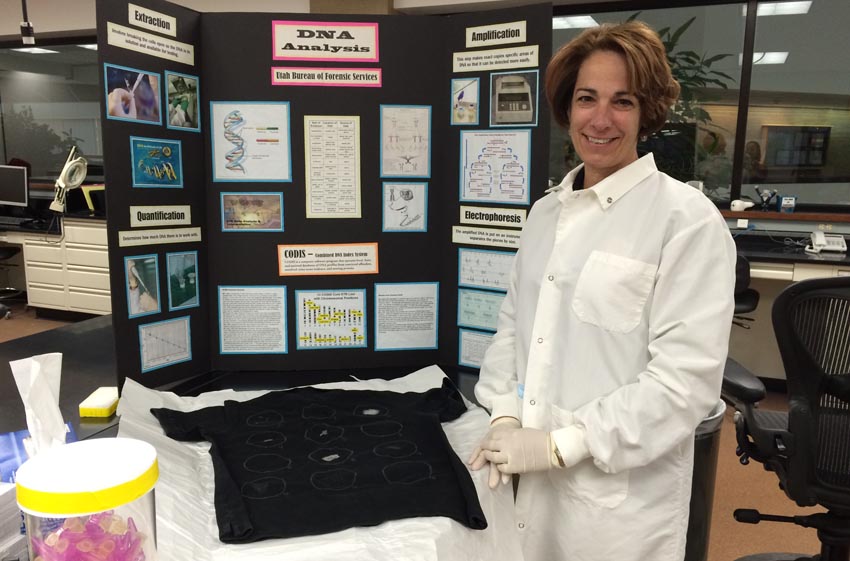She says that series like CSI have served to bring light to crafts like hers, even though “in Hollywood’s way.” Pilar Shortsleeve is a Basque in Utah, forensic scientist by profession that struggles daily with DNA and fingerprints.
basque heritage worldwide

04/23/2015

ADVERTISING
She says that series like CSI have served to bring light to crafts like hers, even though “in Hollywood’s way.” Pilar Shortsleeve is a Basque in Utah, forensic scientist by profession that struggles daily with DNA and fingerprints.
Joseba Etxarri. She is Basque, born 58 years ago in Utah, daughter of Jaime and Madalena (Zatica) Sangroniz, from Gernika and witnesses of the bombing. Pilar Sangroniz Shortsleeve combines her daily work as a criminalist Chief Scientist at the Utah Bureau of Forensic Services located in Salt Lake City with being a director and member of the Utah Basque Club also located in Salt Lake City that includes three generations of Basque families in this American state and center of the Mormon Church.
During the week you are a kind of Gil Grissom at CSI to then become a txistulari for the Utah-ko Triskalariak dance group in Salt Lake on the weekend.
-Both Jobs complement each other perfectly. Both activities are very relevant pieces of my life that have contributed and made me what I am today. I have been in the profession for 26 years, and have spent my entire life in the Basque club that I am so proud of.
You have the Medal of Science and Technology of Utah that was awarded to you by the Governor, and you coordinate a specialized department formed by 40 scientists and technicians. Is it really all about DNA and fingerprints as portrayed on TV?
-I think that we should be grateful to these shows because they have made people aware of our work and profession, something that had passed unnoticed until now. But you can’t forget that what is on TV is Hollywood’s version. Our daily work, at least in our department, isn’t police work; we don’t go out and talk to suspects. Our work is to provide scientific support and provide evidence that, as specialists, we validate or not many times even in court. On TV everything wraps up and develops rapidly, when it really is much more complicated and the process takes more time.
We have spoken to Denise Gaztambide before. She is a special FBI agent, also born in Salt Lake. Have you ever worked with her?
-Denise works more in California. I know her and she is a friend but professionally we have never coincided.
What do they say about your work at home?
-They respect my dedication. In this job every day is different, there is no room for monotony or boredom, and you are always learning. Everything evolves, the techniques evolve and this makes us move and stay at the top of our game. Evidences speak to us and tell us their stories and we try our hardest to be able to understand them. I like my work, but we can’t talk about anything that comes through our hands. So at home, we don’t talk about work.
This week, your nice Cirbie (Sangroniz) Lee, current Utah Basque dance director, mentioned you --"my izeko" (aunt)-- in an interview at Hella Basque as a reference and a "huge influence" in her life. You have been dance instructor for years.
The Basques are a extended family in Utah. It is everybody’s work; the whole is what matters and what gives us consistency. It is important to know and remember where we came from, maintain our culture and customs; our Basque heritage stays with us, and gives us strength and sense of community. It is a privilege to be a part of it, and to see that the next generation is taking the baton from us.
ADVERTISING
ADVERTISING
ADVERTISING
ADVERTISING
ADVERTISING
© 2014 - 2019 Basque Heritage Elkartea
Bera Bera 73
20009 Donostia / San Sebastián
Tel: (+34) 943 316170
Email: info@euskalkultura.eus